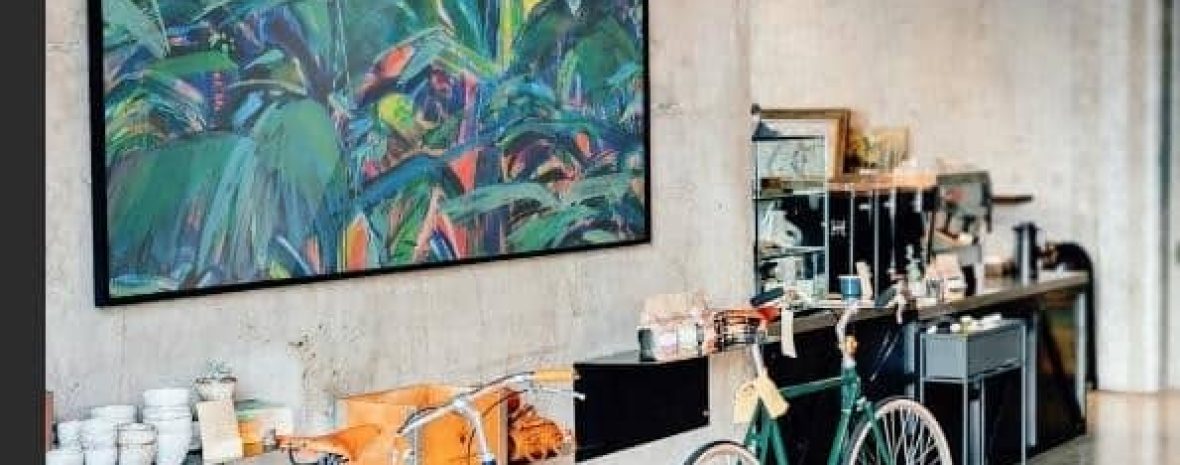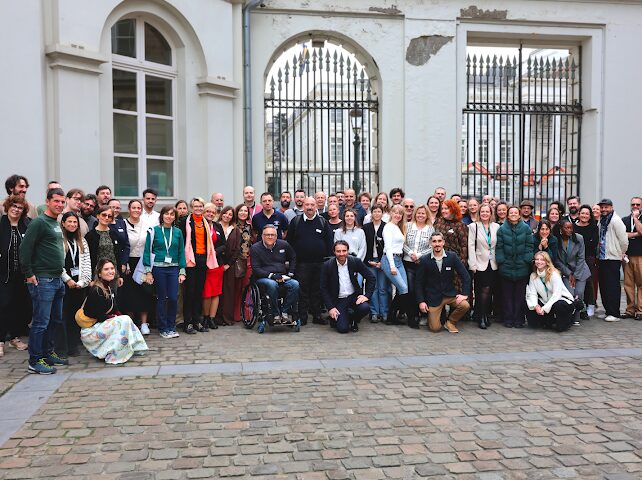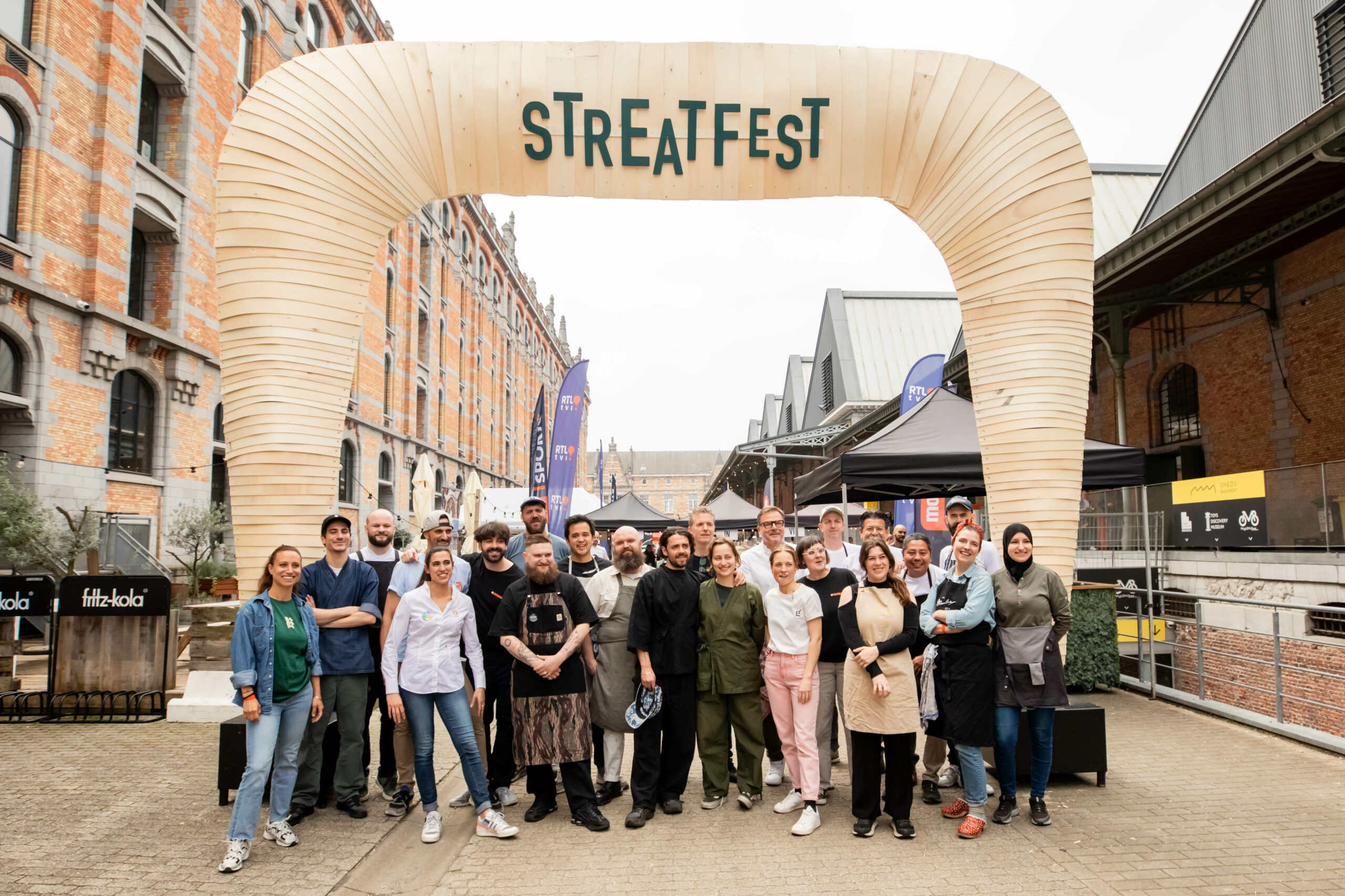oneFrame took shape in the hallways of the Vlerick Business School in Brussels in 2018. This digital art platform was developed by Aleksei Chemisov and Quentin Stas de Richelle during their studies.
Discovering that there was a real possibility to develop an innovative concept in the art field, Aleksei and Quentin began building this exciting project after work.
Today, oneFrame is a team of 3 people working hard to bring people closer to art, with more than one hundred pieces in their portfolio of 18 artists from 14 countries around the world.
A Spotify for artwork
As the founders state, “oneFrame can be compared with Spotify, which makes searching for music easier by creating a digital collection of all of our favourite artists. OneFrame is aiming for same concept, but in the art world.”
“Many people show an interest in art but, unfortunately, don’t have the time to completely immerse themselves in the culture by going to galleries or exhibitions. By presenting artwork on digital screens in locations they frequent often, such as their workplaces or hotel lobbies, everyone can discover and appreciate our international artists”.
Their leitmotiv: bring artists and their audiences closer together
“Art is too important not to share” is the golden rule the founders follow in everything they do.
oneFrame connects artists – who make their work available digitally – with companies – who put their digital equipment (screens, etc.) at their disposal. The goal is to awaken visitors’ curiosity and introduce them to new works of art. But oneFrame takes things even further: by scanning the picture with their smartphone, the viewer can learn more about the story of the work and its creator. The founders want to share the story hiding behind every artwork. It’s an important and key piece of information for creating a connection between viewer and artwork.
Social innovation for artists
The business model behind oneFrame is based on the sale of a digital subscription to companies, hotels, etc. In order to support the cultural sector and demonstrate social responsibility, the revenue from these subscriptions are shared with the artists who made their artwork available on oneFrame. There are many significant benefits for the exhibiting artists including increased visibility, new revenue sources and new audiences around the world!
The democratisation of art
Furthermore, oneFrame enables art to reach past its boundaries, making it possible for anyone to contemplate the works of artists from around the world, whether at their workplace or in their hotel room.
Continued support from hub.brussels
The two cofounders, Quentin and Aleksei, are currently in the launch phase of the project. That’s why they contacted hub.brussels and more specifically, its hospitality.brussels cluster, which is tasked with providing support to innovative projects in the Tourism, Events and Culture sectors.
Until now, they relied on their personal contacts, but thanks to hospitality.brussels, they will be able to present their concept to players in Brussels’ hospitality industry. They will be able to count on the expertise at hub.brussels to assist them in finding financing and advice to develop their business strategy.
Art to comfort seniors during lockdown
During the health crisis, it was very difficult for the two founders to contact companies to sell subscriptions. In order to maintain social responsibility as the main thread of their project, Quentin and Aleksei concentrated on the groups most affected by the lockdown. For this reason, they decided to make their subscription service available free-of-charge to nursing homes in Brussels and nearby areas.
The positive and negative sides of combining full-time work and a project they are passionate about.
“Working as an employee and working for a start-up are completely different experiences”, add Quentin and Aleksei. An employee knows their responsibilities, whereas the founder of a start-up also needs to be flexible and know how to manage multiple things at once. Working for a start-up is more dynamic and that has enabled them to learn new skills they would not have acquired as employees.
“We sometimes find it difficult to put limits on ourselves and avoid blind passion. But that can also be seen in a positive light, because our project often takes big steps forward at those times”.
Do you have any advice to give for launching a start-up?
Quentin and Aleksei support and motivate each other, which is very important when working at a start-up. To succeed, they have to believe and be passionate, because they often work on weekends to move their project forward, which doesn’t always leave them time for friends or family.
More information:
https://www.linkedin.com/company/oneframe/about/
https://www.instagram.com/oneframe.eu/
https://www.oneframe.eu/



